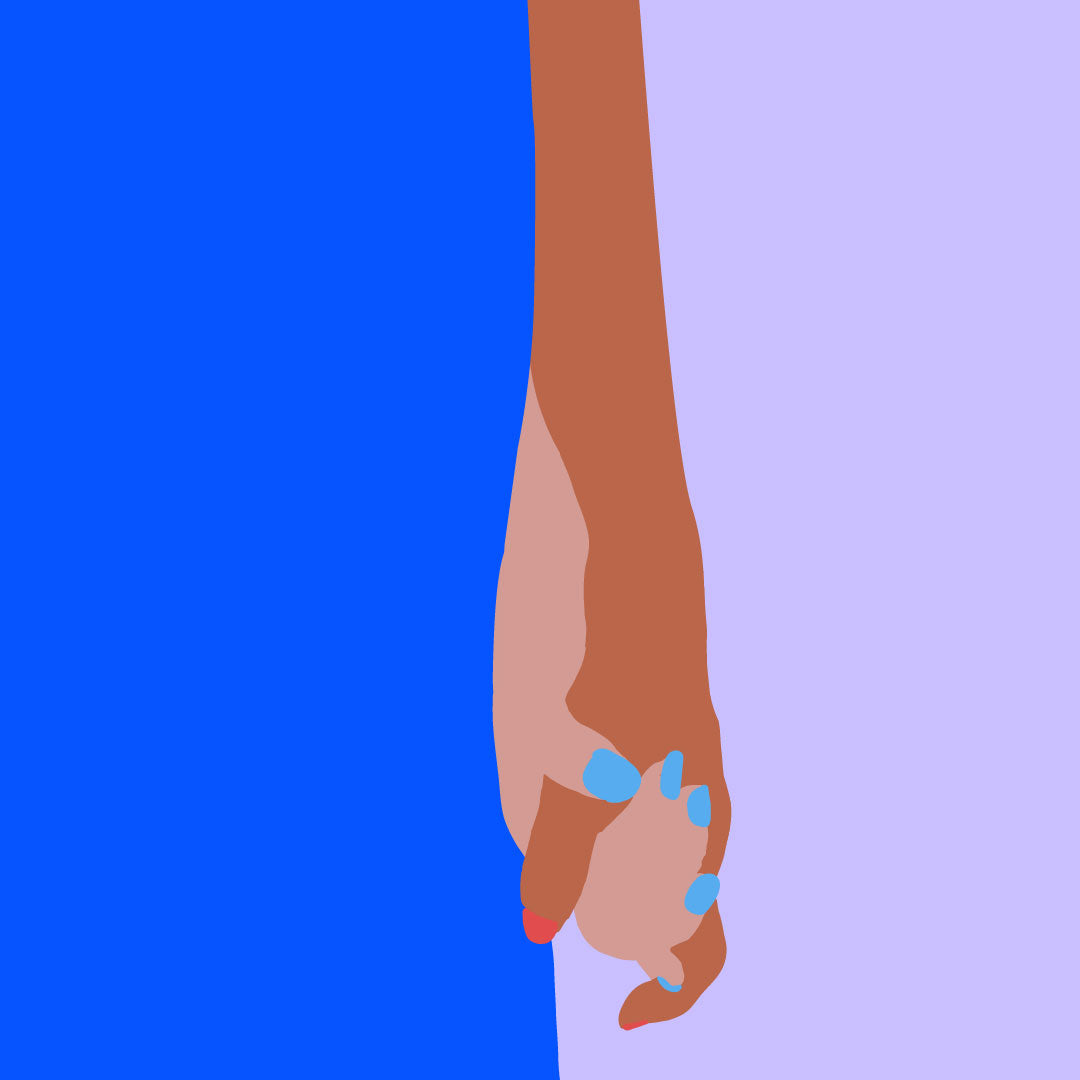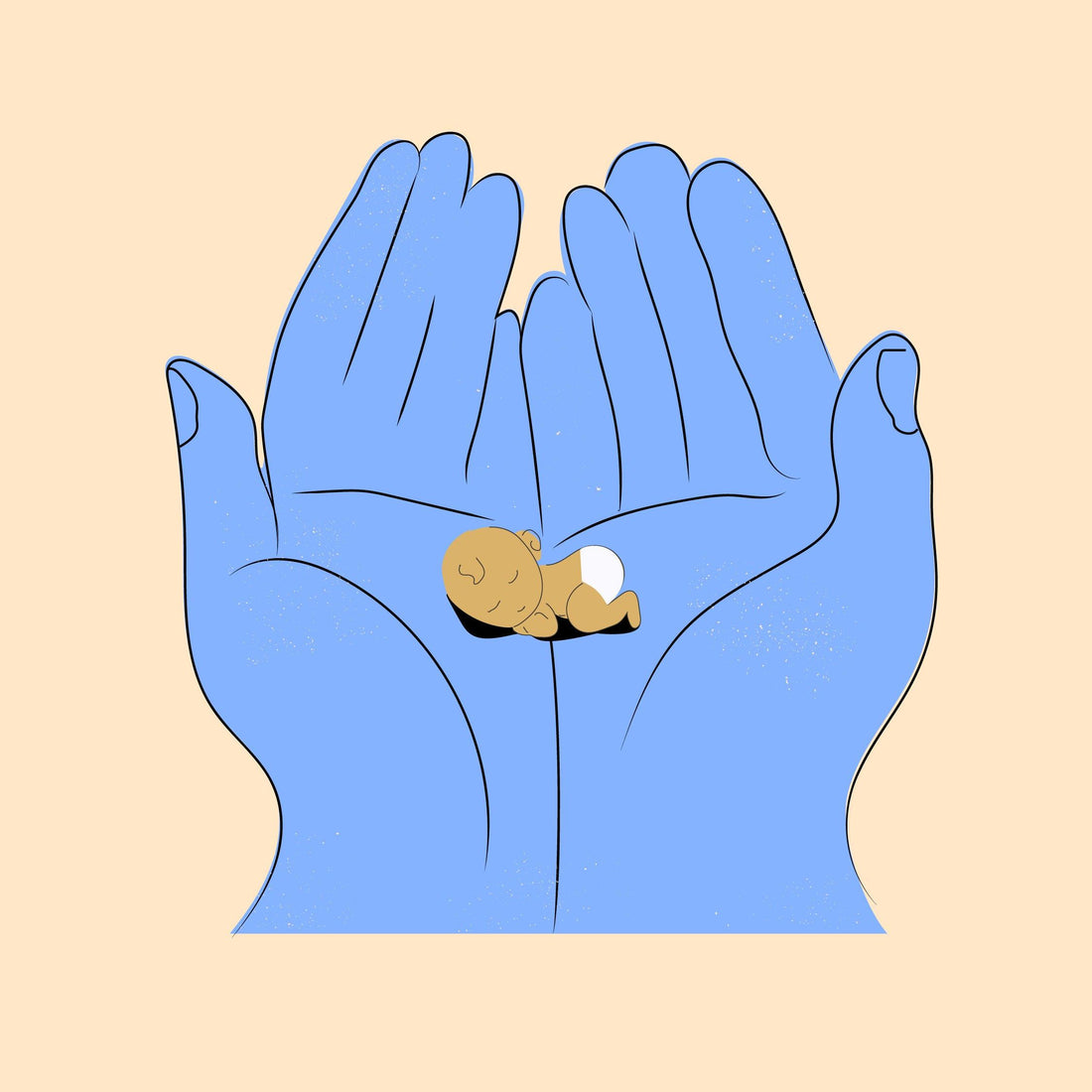Before starting a family, things like miscarriage rates are probably only something you’d be vaguely familiar with. But once those two pink lines emerge, all senses are heightened, and suddenly the statistics are burned into your brain.Those statistics? Up to one in five pregnancies ending before 20 weeks, which equates to between 100,000 and 150,000 women experiencing pregnancy loss each year.
But what they don’t tell you alongside these statistics, is how to support a friend who is experiencing this heartbreak first hand. Because regardless of what week you’re at, an incomplete pregnancy is still a pregnancy. And with that, comes grief.
Here we speak to Amanda Tipping, General Manager of The Pink Elephants Support Network, a not-for-profit dedicated to ensuring that no one walks through pregnancy loss alone, to help guide us to being the friend any grieving mother needs.
It’s more than miscarriage
As a friend, the first thing you can do is be clued in on to the different types of pregnancy loss your friend may be experiencing. Although it may be the one you hear about most, many people don’t realise that miscarriage is only one form of pregnancy loss, and even within that there are several types of miscarriage (incomplete miscarriage, missed miscarriage). “There are other kinds of loss that can result in a pregnancy ending, even though they may not typically be classified as a miscarriage (such as an ectopic pregnancy) and the women experiencing them will also require lots of support and love,” says Amanda. At Pink Elephants, they term all losses prior to 20 weeks as “early pregnancy loss” and this also encompassess terminations for medical reasons.
This is grief
There is no rulebook for grief, regardless of what (or who) the loss was. It’s important to acknowledge that incomplete pregnancies are still very much a loss and that each person will experience this grief differently. Many mothers carry the weight of this themselves too, as they may have not shared their pregnancy yet, making asking for support even more burdensome.
“As little as seven years ago there was little emotional support information and services around Early Pregnancy Loss because it was fraught with unknowns, silence, shame and stigma. Many families carry the experience alone because of outdated social practices such as the ‘12 week rule’, which can only exacerbate the sense of isolation and disenfranchised grief felt by parents. When people fail to acknowledge the lives of miscarried babies, it inadvertently contributes to the silence and stigma surrounding miscarriage,” says Amanda.
“When people fail to acknowledge the lives of miscarried babies, it inadvertently contributes to the silence and stigma surrounding miscarriage”
- Amanda Tipping, GM of Pink Elephants Support Network
She suggests that talking and connecting with people about the loss can be very helpful in aiding the processing of emotions, but also says that by talking about it, it also helps to end the stigmas associated with pregnancy and infant loss. So one of the best things you can do as a friend is to listen to them, as this can make all the difference in processing the grief.
It’s also important to understand that this loss is physical as well as being emotional, so your friend will need to heal with sleep and good and nutritious food and they may find practices like meditation helpful too.
4 Ways to Support a Friend Through Pregnancy Loss
Amanda shares her best tips for being supportive during this time.
Don’t be dismissive: “Using terms like ‘at least….’ makes the person feel invalidated,” she says. While they may be used to make your friend feel better it minimises their capacity to grieve. If you’re unsure of what to say, here’s a helpful guide.
Acknowledge their pain: “Acknowledge their sadness and offer practical help in any way you can - just as you would with anyone grieving a loss,” she says. That may mean bringing over home-cooked meals, gifting something that will aid in the physical healing process, flowers or just sitting on the couch with a 2 litre tub of Messina. This all acknowledges that their loss matters too.
Show empathy: “Offer them a safe space to share their journey that will be met with empathy and understanding,” says Amanda. Remember there is no time limit to grief, so allow them to talk about, cry about it, and sit with them for as long as they need. They will carry this loss as a part of themselves forever.
Connect them with support: They may be too overwhelmed to search for support networks themselves, so link them with services like Pink Elephants who provide access to peer support companions who have had a lived experience of loss.



























